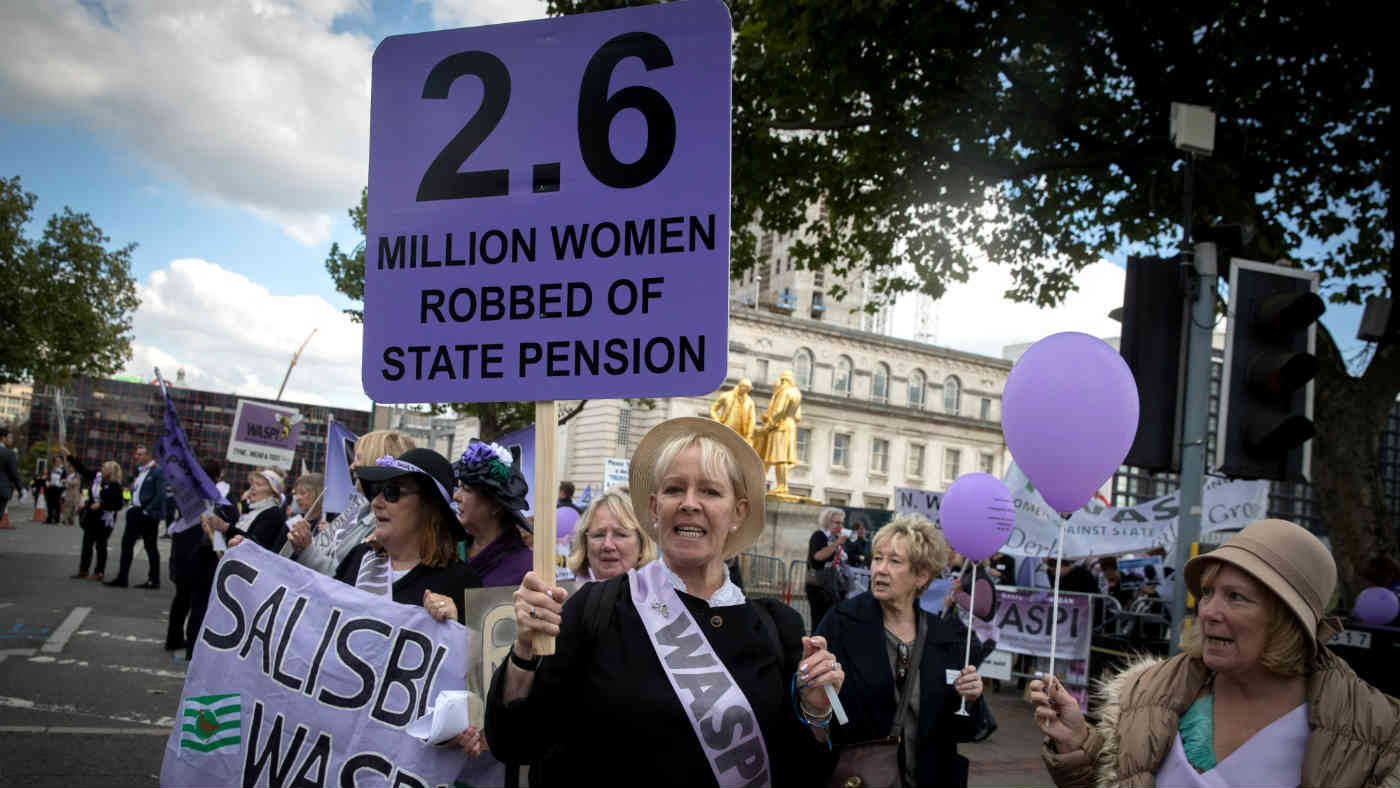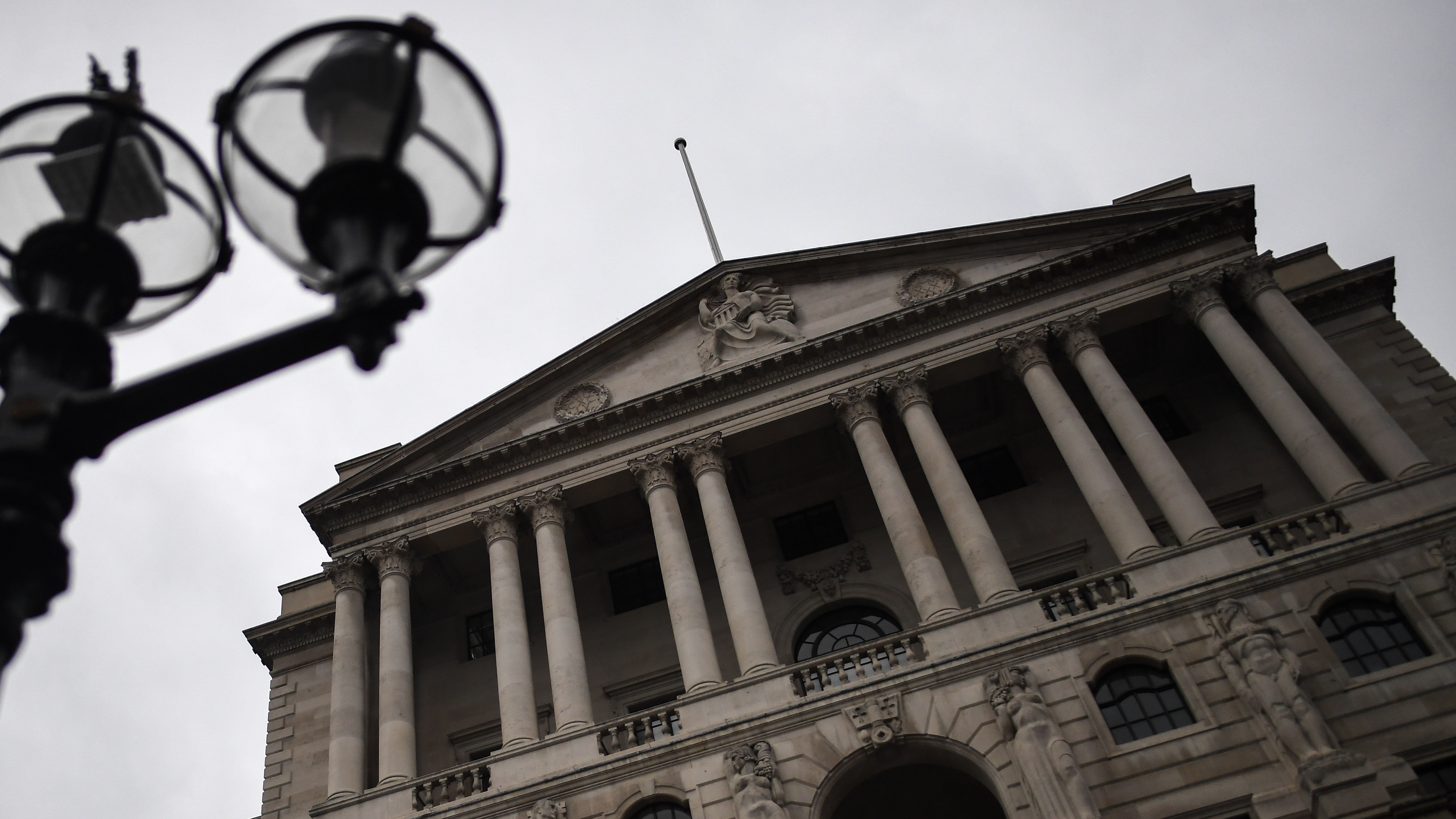A million women worse off after pension age changes
IFS says 60 to 62-year-olds have lost an average of £32 a week - while government gains £5.1bn a year

A free daily email with the biggest news stories of the day – and the best features from TheWeek.com
You are now subscribed
Your newsletter sign-up was successful
More than a million woman aged 60 to 62 have lost an average of £32 a week as a result of increases to the state pension age.
A report from the Institute of Fiscal Studies (IFS) says 1.1 million women over 60 who would have received a pension before 2010 are now having to wait longer to qualify.
As a result, rates of "absolute poverty" among the group, where incomes are below 60 per cent of the median, have risen, says the BBC.
The Week
Escape your echo chamber. Get the facts behind the news, plus analysis from multiple perspectives.

Sign up for The Week's Free Newsletters
From our morning news briefing to a weekly Good News Newsletter, get the best of The Week delivered directly to your inbox.
From our morning news briefing to a weekly Good News Newsletter, get the best of The Week delivered directly to your inbox.
However, adds the IFS, the government's finances are better off to the tune of £5.1bn a year.
Until 2010, women were able to receive a state pension at 60. However, the coalition government that year introduced a programme of staggered changes to equalise the pension age at 65 by 2020. So far, women now qualify at the age 63.
That has meant those aged 60 to 62 have lost around £82 a week, only partially offset by the additional earnings they receive to leave them £50 a week worse off, says the Financial Times.
Changes in the income of a partner mean the overall household income level is down by a net average of £32 a week.
A free daily email with the biggest news stories of the day – and the best features from TheWeek.com
Despite the changes and the rise in poverty rates, the IFS said there had been no material change in the number of women experiencing "material deprivation", where they cannot afford a range of important items.
Pensions are the largest part of the welfare budget, accounting for more than £100bn a year after consistent increases in life expectancy.
The government borrowed £46bn to cover a shortfall of tax receipts against spending last year.
In addition to the £5.1bn gained from the pension reform - of which £900m is additional employment taxation - further changes to the pension age in the next 30 years will save the state an estimated £74bn.
The government said its pensions policy was "fair and sustainable".
-
 How the FCC’s ‘equal time’ rule works
How the FCC’s ‘equal time’ rule worksIn the Spotlight The law is at the heart of the Colbert-CBS conflict
-
 What is the endgame in the DHS shutdown?
What is the endgame in the DHS shutdown?Today’s Big Question Democrats want to rein in ICE’s immigration crackdown
-
 ‘Poor time management isn’t just an inconvenience’
‘Poor time management isn’t just an inconvenience’Instant Opinion Opinion, comment and editorials of the day
-
 Six ways to boost your finances in 2026
Six ways to boost your finances in 2026The Explainer It’s not too late to make a new year’s resolution to finally get organised money-wise
-
 The financial impact of returning to work in later life – should you 'unretire'?
The financial impact of returning to work in later life – should you 'unretire'?The Explainer Many people return to the workplace after retirement age, but what could it mean for your finances?
-
 State pension underpayments: are you getting the right amount?
State pension underpayments: are you getting the right amount?feature Hundreds of thousands of women may have received less than they were owed
-
 Early retirement: what is the ‘FIRE’ movement?
Early retirement: what is the ‘FIRE’ movement?feature Younger workers are aiming to quit the workforce early through extreme saving and investment
-
 How women can bridge the gender pension gap
How women can bridge the gender pension gapIn Depth New figures have shown the extent of the problem for women in retirement years
-
 How to plug the pension gap by buying National Insurance credits
How to plug the pension gap by buying National Insurance creditsfeature A temporary change in the state pension offers a ‘golden opportunity’
-
 Are UK pensions safe?
Are UK pensions safe?Today's Big Question Bank of England governor says its debt market support must end – but the multi-billion-pound scheme could be extended
-
 Pensions: time to end the triple lock?
Pensions: time to end the triple lock?In the Spotlight Ministers must decide whether to risk alienating older voters by ending guaranteed pension rises